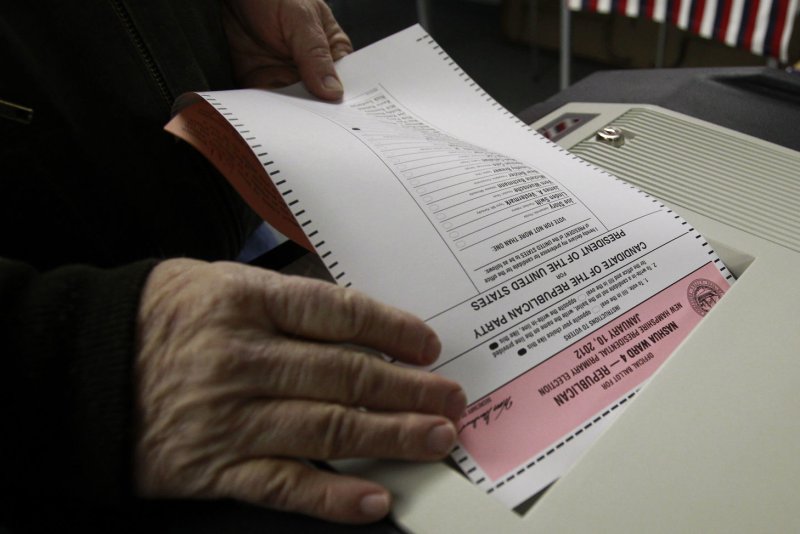The Maryland Senate on Tuesday overturned a veto by Gov. Larry Hogan on a bill that sought to allow convicted felons to vote, regardless of whether they have completed the terms of their parole or probation. Hogan criticized the lawmakers Tuesday and speculated that their support on the issue may cost them their jobs come election time. Photo by Matthew Healey/UPI |
License Photo
ANNAPOLIS, Md., Feb. 9 (UPI) -- Tens of thousands of convicted felons living in the state of Maryland will be able to vote in all future state elections -- including this year's -- regardless of whether or not they have completed the terms of their probation or parole.
The Maryland Senate on Tuesday struck down a veto by Gov. Larry Hogan, which was aimed at scrapping the proposal, by a vote of 29-18.
The bill to extend felons' voting rights was first introduced in last year's general assembly. Democratic lawmakers reinstated it this year and passed it, but that plan hit a snag when Hogan broke out his sixth veto to freeze the bill in its tracks.
Maryland's House of Delegates also voted to overturn Hogan's veto last month.
Presently, convicted felons in Maryland must complete the terms of their parole and probation before they are allowed to register to vote. The bill removes that stipulation and will allow tens of thousands of newly-released felons to participate in the voting process.
The bill will allow about 40,000 felons to cast a ballot in November's vote, The Baltimore Sun reported, and about 20,000 to vote in Maryland's spring primaries.
Opponents of the bill argue that felons ought to earn back their voting rights by completing the punishments given for their crimes.
"Only a tiny, radical minority supports this idea. But they did it anyway," Hogan wrote on his Facebook page after the vote Tuesday. "They don't seem to care what most Marylanders want. Why did they do it anyway? Because they can."
"I don't take it personally but I think most Marylanders are going to be pretty upset by it," he added, also submitting that he believes the vote might come back to haunt some lawmakers come election time.
"[Lawmakers] can't keep ignoring the will of the people," the first term Republican governor said. "I think there are several people who won't survive this vote.
"Some people may have ended their careers."
"That poor victim [of a felon] could be laid up in the hospital bed, and [the convict] is going off to vote," Republican Sen. Michael J. Hough said. "We need to have an orderly process."
Proponents, though, say the voting restriction is confusing and demoralizing to ex-inmates working to rebuild their lives.
"The whole system is unfair," Maryland Sen. Joanne C. Benson said.
Voting rights for convicted felons vary by state. Some don't ever allow felons to cast ballots while others let inmates vote even while incarcerated. Whether a felon can vote in a presidential election is determined entirely by which state he or she resides in.
Maryland's new voting rights for felons goes into effect March 10.















